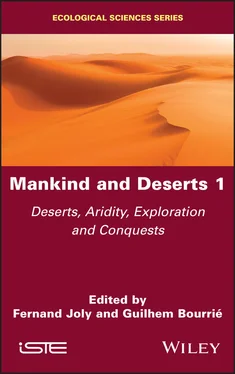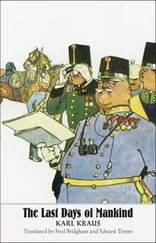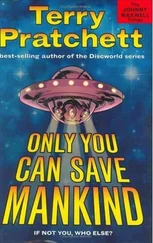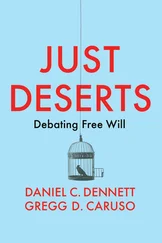Mankind and Deserts 1
Здесь есть возможность читать онлайн «Mankind and Deserts 1» — ознакомительный отрывок электронной книги совершенно бесплатно, а после прочтения отрывка купить полную версию. В некоторых случаях можно слушать аудио, скачать через торрент в формате fb2 и присутствует краткое содержание. Жанр: unrecognised, на английском языке. Описание произведения, (предисловие) а так же отзывы посетителей доступны на портале библиотеки ЛибКат.
- Название:Mankind and Deserts 1
- Автор:
- Жанр:
- Год:неизвестен
- ISBN:нет данных
- Рейтинг книги:4 / 5. Голосов: 1
-
Избранное:Добавить в избранное
- Отзывы:
-
Ваша оценка:
- 80
- 1
- 2
- 3
- 4
- 5
Mankind and Deserts 1: краткое содержание, описание и аннотация
Предлагаем к чтению аннотацию, описание, краткое содержание или предисловие (зависит от того, что написал сам автор книги «Mankind and Deserts 1»). Если вы не нашли необходимую информацию о книге — напишите в комментариях, мы постараемся отыскать её.
Mankind and Deserts 1 — читать онлайн ознакомительный отрывок
Ниже представлен текст книги, разбитый по страницам. Система сохранения места последней прочитанной страницы, позволяет с удобством читать онлайн бесплатно книгу «Mankind and Deserts 1», без необходимости каждый раз заново искать на чём Вы остановились. Поставьте закладку, и сможете в любой момент перейти на страницу, на которой закончили чтение.
Интервал:
Закладка:
75 69
76 70
77 71
78 72
79 73
80 74
81 75
82 76
83 77
84 78
85 79
86 80
87 81
88 82
89 83
90 84
91 85
92 86
93 87
94 88
95 89
96 90
97 91
98 92
99 93
100 94
101 95
102 96
103 97
104 98
105 99
106 100
107 101
108 102
109 103
110 104
111 105
112 106
113 107
114 108
115 109
116 110
117 111
118 112
119 113
120 114
121 115
122 116
123 117
124 118
125 119
126 120
127 121
128 122
129 123
130 124
131 125
132 126
133 127
134 128
135 129
136 130
137 131
138 132
139 133
140 134
141 135
142 136
143 137
144 138
145 139
146 140
147 141
148 142
149 143
150 144
151 145
152 146
153 147
154 148
155 149
156 151
157 153
158 154
159 155
160 156
161 157
Series Editor
Françoise Gaill
Mankind and Deserts 1
Deserts, Aridity, Exploration and Conquests
Edited by
Fernand Joly
Guilhem Bourrié

First published 2020 in Great Britain and the United States by ISTE Ltd and John Wiley & Sons, Inc.
Apart from any fair dealing for the purposes of research or private study, or criticism or review, as permitted under the Copyright, Designs and Patents Act 1988, this publication may only be reproduced, stored or transmitted, in any form or by any means, with the prior permission in writing of the publishers, or in the case of reprographic reproduction in accordance with the terms and licenses issued by the CLA. Enquiries concerning reproduction outside these terms should be sent to the publishers at the undermentioned address:
ISTE Ltd
27-37 St George’s Road
London SW19 4EU
UK
www.iste.co.uk
John Wiley & Sons, Inc.
111 River Street
Hoboken, NJ 07030
USA
www.wiley.com
© ISTE Ltd 2020
The rights of Fernand Joly and Guilhem Bourrié to be identified as the authors of this work have been asserted by them in accordance with the Copyright, Designs and Patents Act 1988.
Library of Congress Control Number: 2020943974
British Library Cataloguing-in-Publication Data
A CIP record for this book is available from the British Library
ISBN 978-1-78630-630-2
Foreword
Mankind and deserts
Fernand Joly 1 departed from this world before he was able to complete this book, through which he had hoped to share his experiences of and passion for deserts.
“Yet another book on deserts!” some might think; another book to add to the numerous publications dedicated to these alien and fascinating worlds.
This book, however, is different from earlier books, as can be seen from its title “ Mankind and Deserts”. It is based on the singular relationships that are formed between humans and the world of the desert – relationships that are unique because they can be traced back to the very origins of humanity. Indeed, it is from the arid Horn of Africa (East Africa) that large migrations began and it is along the deserts, if not within the deserts themselves, that we find the major cradles of burgeoning historical civilizations. This inhospitable world is also associated with great spiritual leaders such as Moses, Jesus, Mohammed and the Buddha, while serving as the backdrop for adventurers and empire builders from Alexander the Great to Genghis Khan, or from the Incans to the Conquistadors in the Andes and Mexico.
What is this universe that is so barren and yet so mesmerizing?
“ All about a word” was how Fernand Joly introduced his book: “ What is a desert?” The ambiguity in this word results from the fact that it has been used in different senses across literature and throughout history. For a geographer-writer such as Fernand Joly, the one fact that stood out was that there was no one desert; instead there were multiple deserts , diverse and varied, ranging from Death Valley to the Kalahari, from the Namib to the Atacama or the Gobi desert. Each of these is a unique landscape, whose uniqueness was born out of its position with respect to the general atmospheric circulation, its geographic location with respect to the sea and to its relief features. And yet, transcending all differences, there is one constraint that binds them all together: aridity, defined as a natural physical state characterized by persistent dryness with the corollary of extremely scarce water resources. Both these concepts, aridityand water, are at the heart of the following chapters. Aridity ( Chapter 3) because it “transcends time and takes over space” and water (Volume 2, Chapters 1– 3) because it is the essential resource for all life, especially in the desert. Aridity is distinct from “drought”, which is simply a “period with insufficient rainfall”. Water is seen through the lens of how it appears on land: “wild water”, which flows over slopes in an un-channeled manner (Volume 2, Chapter 1), under the impact of violent but brief downpours, and “concentrated waters”, i.e. waters “concentrated” into a channel, fed by distant precipitation upstream of the borders of the desert. As can be seen, there is in fact a true hydrography of the arid world. Satellite images, among other sources, offer us clear and accurate reproductions of these systems: fossil hydrographic networks , the legacy of ancient humid periods, a map of intermittent water bodies (Volume 2, Chapter 2): playas and sabkhas , permanent lakes with fluctuating shorelines, such as Lake Chad or Lake Eyre, or large allogenous rivers (Volume 2, Chapter 3) that are born outside the desert but travel through the desert, sustaining life, such as the Colorado, the Niger and the Nile, “the first and most remarkable of rivers in the arid world”.
The role played by salts in hot deserts is rarely discussed in a systematic manner. Guilhem Bourrié, geochemist and soil scientist at INRAE, has analyzed the origins and nature of these salts and demonstrated how important these salt deposits in the desert are for humans, whether they live off agriculture, livestock or, indeed, the salt trade (Volume 2, Chapter 4).
Chapter 1of Volume 3, drafted by Joly, was edited after his demise by Yann Callot, a professor at the University Lyon 2 who is a specialist in ergs and dunes. This chapter examines the importance of windin the desert. Wind, sometimes considered to be more emblematic of a desert than even dryness, counts among the earliest dynamics on Earth, an element that humans have not always been able to control. Indeed, this lack of understanding of wind has sometimes had disastrous consequences for certain projects (see the Green Dam in Algeria).
Читать дальшеИнтервал:
Закладка:
Похожие книги на «Mankind and Deserts 1»
Представляем Вашему вниманию похожие книги на «Mankind and Deserts 1» списком для выбора. Мы отобрали схожую по названию и смыслу литературу в надежде предоставить читателям больше вариантов отыскать новые, интересные, ещё непрочитанные произведения.
Обсуждение, отзывы о книге «Mankind and Deserts 1» и просто собственные мнения читателей. Оставьте ваши комментарии, напишите, что Вы думаете о произведении, его смысле или главных героях. Укажите что конкретно понравилось, а что нет, и почему Вы так считаете.











